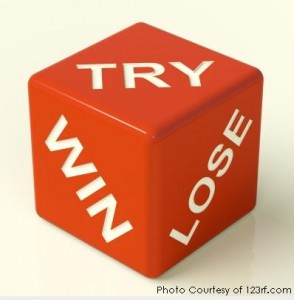
Embrace failure. Welcome failure. It’s a lot friendlier than people think.
But why? Why embrace it, why welcome it? Throughout life we have been told that failure is to be avoided at all costs, that failure is the opposite of success, that failure is…well failure.
Most of us students fear failing. For example, when we receive a low test grade, defeat washes over us. We don’t know how to handle that low grade, and in turn we bash ourselves mentally, which causes insecurity and low confidence. We feel unmotivated towards studying for the next test, and then our grades spiral lower and lower.
But why is failure a bad thing? A low grade shouldn’t cause us to feel defeat. A low grade should cause us to fix our mistakes and try harder next time.
Junior year really broke me down. I didn’t feel I could get anything done. My classes were incredibly hard and there was always so much homework; my grades started to fall and I lost my motivation. I felt like I was failing and wanted to just quit all of it.
My parents sat me down one day and explained that as long as I tried my hardest, I could never fail; that to them, true failure is only when you give up. That conversation opened my eyes to a new light; my confidence level soared and my grades started to rise. It taught me that success isn’t perfection, success is merely a measure of how hard I tried.
“Many of life’s failures are people who did not realize how close they were to success when they gave up,” Thomas Edison said.
Never consider anything that is less than the best to be a failure. Without previous failures, we would never learn from our mistakes and wouldn’t have anything to build off of.
Paul Dinkenor, teacher at Leesville, said, “Failure is the best teacher there is. You need a loss because it’s important for motivation.” Losing puts us in a place we won’t ever want to revisit. It motivates us to work harder and reach farther to keep out of that low bottom. A failing test grade causes us to study harder for the next test. A losing game causes us to practice harder for the next coming game.
Even the reputable Helen Keller once said, “Avoiding danger is no safer in the long-run than out-and-out exposure, and the fearful are captured just as frequently as the bold.”
Who better to speak about the importance of failure? At the beginning of her life, Helen Keller was nothing but failure, had waddled in it for years and years, until finally she prevailed. She couldn’t see or hear, but had such perseverance she overcame her countless failures and learned from each and every one of them.
There is an interesting article called “Making Friends with Failure”. In it, Ainissa Remirez mentions the “failures” of Thomas Edison. He tried 10,000 times to invent the lightbulb. 10,000 times! But never once did he say he failed, he merely said “I found 9,999 ways how not to make a lightbulb.” He built off of his defeats to improve, always building higher and higher until finally–the light bulb was created.
“If you learned something from the experience, you did not fail,” wrote Remirez.
In “The No. 1 Thing that Successful People Never Do”, Bernard Marr wrote about how “we often put ourselves down for making mistakes.” He said that instead of putting ourselves down, we should consider these mistakes as learning experiences. The bigger the mistake, the more memorable it should be, which will cause us to learn more from these mistakes and prevent us from making similar mistakes in the future.
“Be comfortable making mistakes in your pursuit of success. Don’t be ashamed or put yourself down for making mistakes,” wrote Marr.
Think of life as striving to make ourselves better, to explore, to learn, to grow, and to share. Always learn from the mistakes and the downfalls, the blunders and errors. Because without failure, there is no growth. Without failure, there is no success.

Leave a Reply